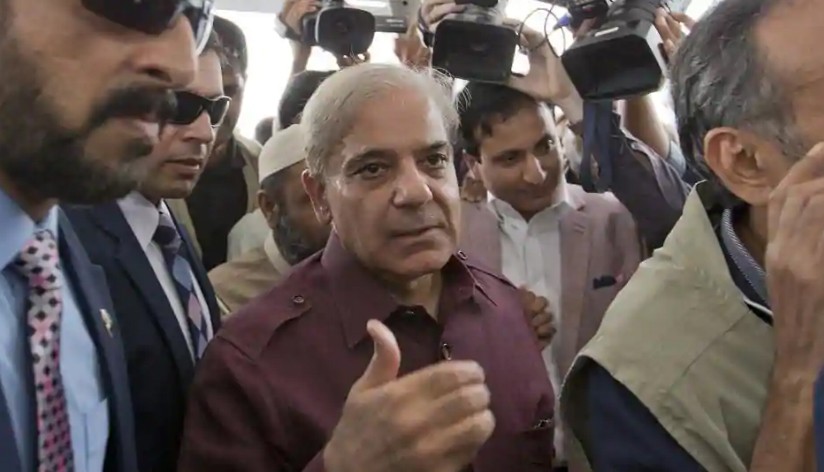
With 139 first-timers, Shahbaz Sharif as leader of the opposition, and Bilawal Bhutto Zardari and Akhtar Mengal making their debut entries, this indeed will be a vibrant house

The 14th National Assembly has made history by electing a staggering number of first-timers -- of a total 270 seats up for grabs on July 25, no less than 139 (41 per cent) were taken by newcomers, of which 67 alone belong to the Pakistan Tehreek-e-Insaf (PTI).
With Shahbaz Sharif as the likely leader of opposition and political bigwigs like Bilawal Bhutto Zardari and Akhtar Mengal all making their debut entries, this indeed will be a vibrant house and yet the most inexperienced too. "Basically, people are electing new parliamentarians; weeding out old representatives, bringing in new ones, which is good… it makes the parliament vibrant," says Zaigham Khan, Islamabad-based analyst.
Vibrant indeed, in reality it is also the most inexperienced parliament. With no experience of running government affairs in the centre, analysts doubt the PTI’s ability to run the parliament, particularly after witnessing the pandemonium that broke out in National Assembly on Aug 17, the day Imran Khan was elected prime minister.
Unlike the 1990s, when two political parties -- PPP and PML-N - opposed each other in the parliament, now, with the PTI winning a majority, the floor of the parliament is open to three main parties. This triangular contest between the PTI, PML-N and PPP is likely to become a norm in the new National Assembly, traces of which were evident on Aug 17 after the PPP abstained from voting for Shahbaz Sharif for the prime minister’s office.
There is a slight chance of cooperation between the PTI and PPP in Sindh, and this may shape their policies in the parliamentary politics at the centre. But, with the PML-N having lost the chance of being at the helm in Punjab, it is now purely an opposition party, and open confrontation in the parliament is expected. If Imran Khan’s first speech as prime minister is any indicator, it guarantees fireworks in the house.
There is a reversal of roles as far as parliamentary politics is concerned. Yesterday’s ruling party, the PML-N is the main opposition party in the house now, and yesterday’s opposition, the PTI is today’s ruling party. In all likelihood, the situation in the new house will be markedly different from the old one. Unlike PTI, PML-N doesn’t seem in the mood to stage opposition in the streets of the country. It is more inclined towards parliamentary opposition. Unlike the last assembly, Imran Khan, is planning to spend more time in the house, by holding question time twice a month. This will be in complete contrast with the tradition set by Nawaz Sharif of seldom appearing in the house.
These three pro-strong centre parties will dominate parliamentary politics in the next five years. With the defeat of Mehmood Khan Achakzai, a strong nationalist voice has been lost in the lower house that upheld civil and parliamentary supremacy.
In Akhtar Mengal (BNP) though, one sees a strong personality who will stand against the political currents; raise issues like missing persons for instance. He is someone who doesn’t simply have an academic, journalistic or political interest in the issue of missing persons -- he wakes up every morning in his hometown to hear new stories from the distressed families of missing persons. Previously, the PPP, PML-N and ANP did raise this pressing issue in the parliament, however, only symbolically, as they were not directly affected by it.
Mengal is capable of bringing to fore the key Baloch issues. "Provincial autonomy has ceased to remain an issue in national politics after the 18th amendment. But Akhtar Mengal is a smart politician. He has reinvented himself, by joining the National Assembly, which means he wants to do national politics," says Ahmer Bilal Mehboob of PILDAT. "Irrespective of whether Akhtar Mengal will join the government or not, there are issues which he will continue to raise, such as missing persons."
In addition to main leaders of Pashtun Tahaffuz Movement (PTM) -- Ali Wazir and Mohsin Dawar -- from North and South Waziristan have made it to the lower house.
Against all apprehensions, Muttahida Majlis-e-Amal (MMA) is the only religious group present in the lower house. All heavy weights of religious parties lost in the parliamentary elections; now the religious parties would be represented by relatively little known figures in the house. How the absence of the astute religious figure, Maulana Fazlur Rehman, will affect parliamentary politics and, more specifically, the role of religious parties in politics is not difficult to judge.
Read also: Politics of opposition
Sources in the MMA say that its leadership is under pressure from the religious lobby to take up the issue of Khatam-e-Nabuwwat in parliament as no other religious party has won a seat in 2018 general elections. They may pressurise the government for more legislation in this regard.
The big question is, if MMA takes up this issue in the next parliamentary, who will it really target? In the previous house, it was the former ruling party which was the target.